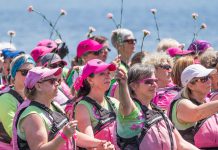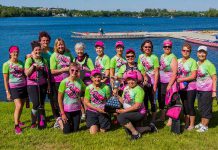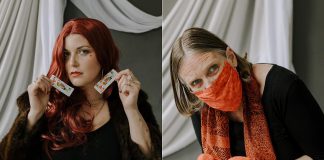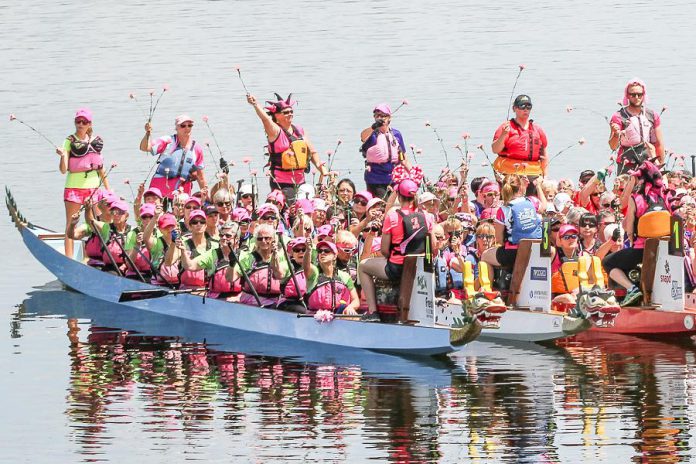
In a day filled with competitive spirit, race preparations, and the general hubbub of thousands who gather on the shore of Little Lake to take part in Peterborough’s Dragon Boat Festival, a few quiet moments will be set aside midday on June 10th to remember the reason for the gathering.
“The Carnation Ceremony can be a very emotional experience,” says this year’s festival co-chair Carol Mutton, “especially if the team has lost someone recently.”
The Carnation Ceremony has become a traditional part of Dragon Boat Festivals around the world in which breast cancer survivors are participating.
It originated at a race in Vancouver in 1996, when one of the paddlers brought fushia-coloured roses from her garden that just happened to be in full bloom and matched the dragon-boating shirts her team would wear.
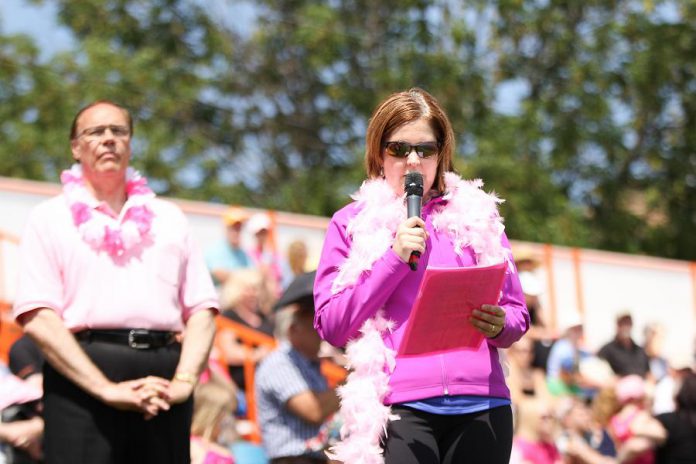
The paddlers tucked them into their headbands as they raced.
The following year, the sentiment was repeated in honour of a novice paddler who relapsed and was unable to take part in the race. A teammate brought pink flowers as tokens of their hope for their friend’s survival. Instead of the paddle salute, the team spontaneously threw their pink flowers onto the water.
By 1998, flower-tossing was co-ordinated into a ceremony, and it has since become rooted into the dragon boating culture.
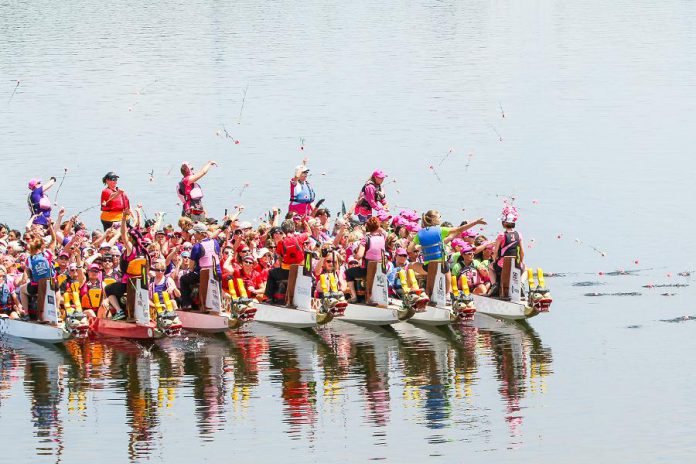
After the cancer survivors race, usually mid-day at the Peterborough festival, the boats gather near the shoreline and a lull comes over the crowd. In Peterborough, the Peterborough Pop Ensemble has provided the musical meditation for the few minutes before and after the names of those who have lost their cancer battle are read.
In fact, when Peterborough hosted the International Dragon Boat Festival in 2010, the Ensemble’s music director Barbara Monahan wrote a piece specifically for the event, “Never Really Gone”, a piece that has been requested again and again and is now a permanent part of Peterborough’s Carnation Ceremony.
“It’s just that sense of loss, and it’s also celebratory,” Mutton says. “Celebrating that we are all alive, and hoping for a bright future.”
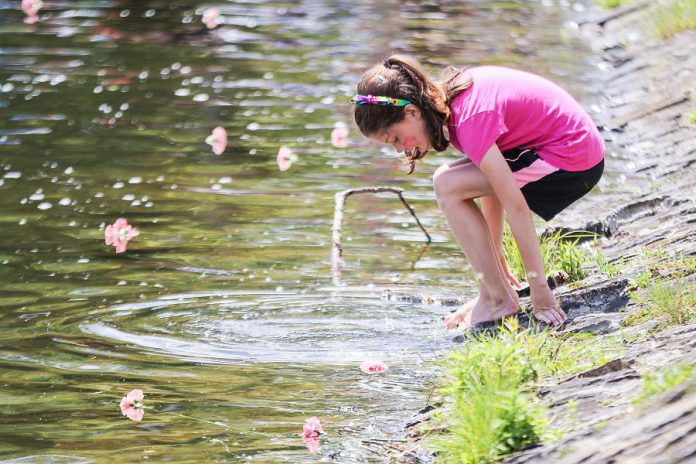
All photos by Linda McIlwain / kawarthaNOW.






















